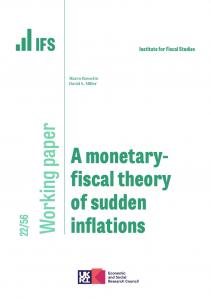This paper assesses the effect of fiscal rules on sovereign bond spreads over the short and medium term, for 34 advanced countries and 19 emerging market economies, over the period 1980–2016. Our results, based on impulse response functions, show that the dynamic impact of fiscal rules on sovereign yield spreads is negative and statistically significant, at around 1.2–1.8 percentage points, implying lower government borrowing costs. This result stems essentially from the advanced economies subsample. We also find that more fiscally responsible countries are the ones for which a fiscal rule reduces the government's borrowing costs. Moreover, in times of recession, a fiscal rule leads financial markets to reduce the risk premiums on government bonds. Finally, when it comes to design features of fiscal rules, independent monitoring of compliance to the rule, done outside government, also reduces sovereign spreads.








